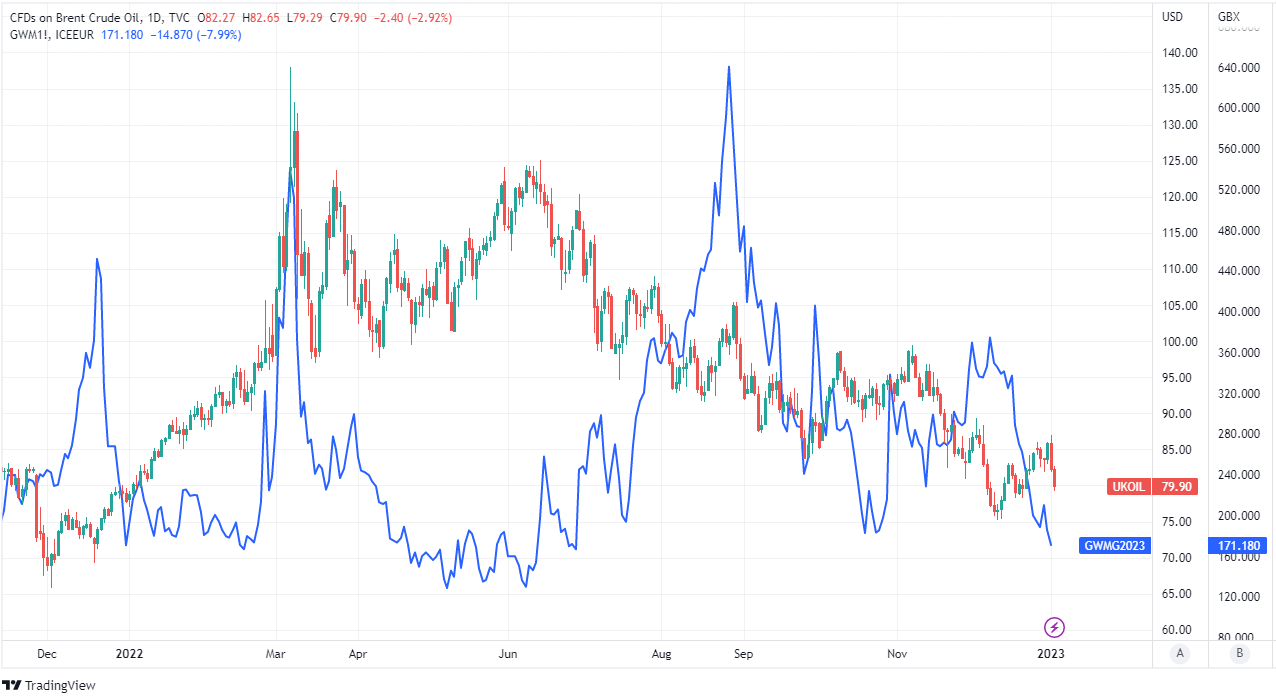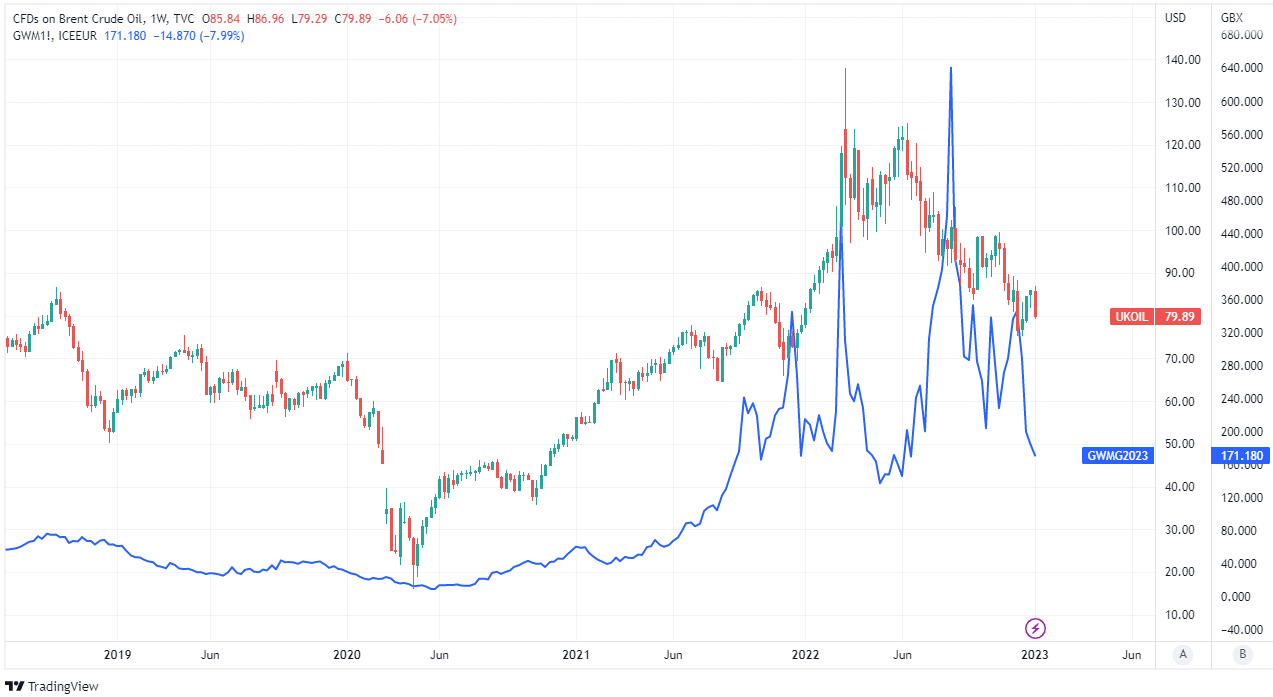Energy Price Declines Offer HM Treasury Luxury of Strategic Choices
- Written by: James Skinner
"That could leave Europe more vulnerable next winter or in winters to come" - Rabobank.

Image © Gov.uk
Declining energy prices are lessening the damage done to the public finances by last year's increases and affording HM Treasury the luxury of making strategic choices about what to do with the Office for Gas and Electricity Markets (OFGEM) price cap for household energy bills from April onward.
Natural gas prices remain more than three times higher than they were at the end of 2020 but recent falls have taken them below the levels prevailing when Russian armed forces first crossed into Ukraine last February while similar developments have played out in the oil market.
This is saving the taxpayer money after the government said in September that it would use public funds to cap household energy bills at £2,500 per year when market prices meant, at the time of the November price cap announcement by OFGEM, average bills closer to £4,279.
"Natural gas futures prices in 2023/24 currently are 34% lower than during the 10 working days to November 4, while electricity prices are 23% lower," says Samuel Tombs, chief UK economist at Pantheon Macroeconomics.
"This suggests that it will cost the government about £6.0B to hold the typical households’ energy bill at £3,000 in 2023/24, less than half the £12.8B estimated in November," Tombs writes in a Tuesday research briefing.
It was announced in the November budget that the price cap would rise to £3,000 from April.
 Above: Brent crude oil price and UK natural gas price shown at daily intervals.
Above: Brent crude oil price and UK natural gas price shown at daily intervals.
Compare Currency Exchange Rates
Find out how much you could save on your international transfer
Estimated saving compared to high street banks:
£2,500.00
Free • No obligation • Takes 2 minutes
Tombs says risks to his forecasts for incomes and spending "no longer look so skewed to the downside" because of the declines in prices but acknowledges that energy markets can be volatile and unpredictable.
This is why even as falling prices save taxpayer money, they also afford HM Treasury the luxury of making strategic choices about price cap levels.
"We doubt that any data releases will compel the OBR to abandon its optimistic medium-term forecasts before the Budget in just two months," Tombs says.
"The OBR, therefore, likely will revise down its pre-measures forecast for borrowing in 2023/24 by about £10B to £130B, and leave its forecast further
ahead largely unchanged, presenting Mr. Hunt with the pleasant conundrum of either banking the windfall or spending it to bolster households’ finances and his party’s re-election chances," he adds.
While there is a clear opportunity for HM Treasury to limit further increases in bills at little cost to the taxpayer in return for both economic and electoral dividends, there is also an opportunity for the Chancellor to make more financially strategic choices for longer-term public benefit.
 Above: Brent crude oil price and UK natural gas price shown at weekly intervals.
Above: Brent crude oil price and UK natural gas price shown at weekly intervals.
GBP to USD Transfer Savings Calculator
How much are you sending from pounds to dollars?
Your potential USD savings on this GBP transfer:
$1,702
By using specialist providers vs high street banks
Financially strategic choices might appeal to HM Treasury in the face of uncertainty about future energy supplies and given the constraints imposed by impaired public finances and rising interest rates at the Bank of England, though these would be the more politically difficult choices.
"Companies may reluctant to reopen their production facilities as long as significant uncertainty over gas availability remains. But if consumers see energy prices decline again, that could easily make them complacent," says Bas van Geffen, a senior macro strategist at Rabobank.
"And, worse, what if this lowers governments’ incentives –either on the national or EU level– to press on with structural improvements in Europe’s energy security? That could leave Europe more vulnerable next winter or in winters to come," van Geffen writes in a Wednesday financial market commentary.
One of the most strategic choices would be to maintain an above-market price cap so as to collect prepayments that could help to ensure future supplies while lessening the risks that could be posed to the public finances if wholesale prices were to rise back toward last year's levels in the future.
This would, however, also be a politically unpalatable choice in light of public focus on the 'cost of living' and the gloomy outlook for the UK economy.



